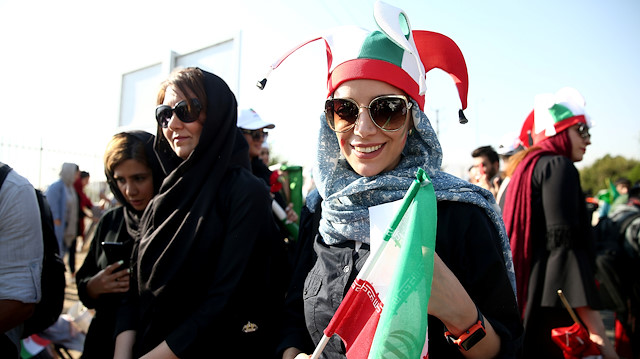
'HATED BAN'
FIFA stepped up pressure on Iran following the death of a football fan last month, who set herself on fire to protest against her arrest for trying to get into a match.
Shojaei said the death of Sahar Khodayari - dubbed "Blue Girl" after her team Esteghlal's colours - had changed attitudes among the public, but not officials.
The activist said she believed the stadium ban had become symbolic for officials who she thought feared that women would demand more rights if they caved in.
"I think they think that if they give in on this they will have to give in on other things," she added.
Human Rights Watch's Minky Worden said the ban was never just about sport.
"The only logic for keeping this hated ban in place for so long is that, if this ban fell, women would insist on other basic rights - and they absolutely should," she added.
HRW said women photographers had been banned from covering Thursday's match and that it had lodged a complaint with FIFA.
"Iran is still not playing by the rules," Worden said. "The ban is crumbling, but it's not gone."
No one at FIFA was immediately available for comment.
Shojaei's campaign attracted international attention last year when she raised a banner during Iran's World Cup matches with the slogan: "Support Iranian women to attend stadiums #NoBan4Women".
On Thursday she said her brother Masoud, who led the national team at the World Cup last year, supported lifting the ban and she believed most other players did too.
"My mother used to go and watch matches all the time when she was young, but she has never seen her son play," she said.
"We are very proud of him, but we are not proud of this situation."
Shojaei, who has protested at international matches for five years, launched an online petition ahead of last year's World Cup which she submitted to FIFA in June.
"We will keep working on this until the day it is normal for women to watch football just like in other places in the world," she added.
Hello, the comments you share on our site are a valuable resource for other users. Please respect other users and different opinions. Do not use rude, offensive, derogatory, or discriminatory language.
The floor is all yours.








